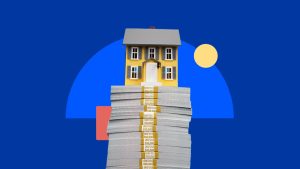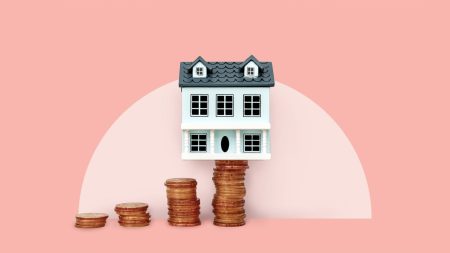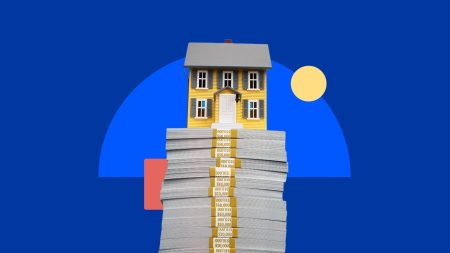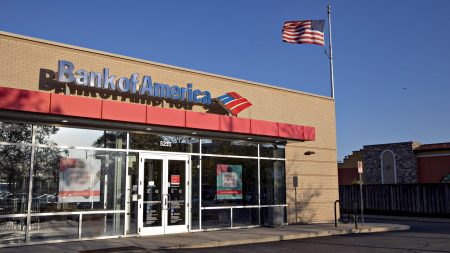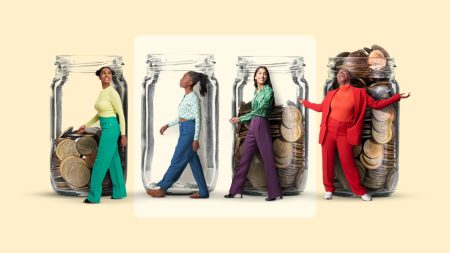Yes, I stopped contributing to my 401(k) and paused all other types of investing to pay off my student loans. And no, I don’t regret it. Going against the grain not only helped me become debt-free, but after I paid off my loans, I was able to invest enough to retire at the age of 40.
The general wisdom from personal finance experts is that you should never stop investing. But that advice doesn’t take into account that 42.7 million Americans grappled with federal student loan debt last year, with an average balance of $38,000. It also doesn’t consider the mental toll that student loans take on borrowers.
Bankrate insights on the weight of debt
- 43% of U.S. adults reported that money negatively impacts their mental health, at least occasionally, causing feelings of anxiety, stress, worrisome thoughts, loss of sleep, depression and other effects, according to Bankrate’s Money and Mental Health Survey.
- In 2023, Bankrate’s Financial Milestone Survey found that 59% of U.S. adults who have held student loan debt delayed financial milestones due to their student debt.
- 21% of Americans cited paying down debt as their main financial goal for 2025, according to Bankrate’s Financial Outlook Survey.
Freeing yourself from the weight of debt before focusing on other financial priorities can relieve some of that burden. Financial advisors will insist that you’re missing out on the wonders of compounding interest on a retirement account, but don’t forget that your student loan interest is compounding, too. Depending on your loan balance and interest rate, you may even come out ahead by throwing money at debt payments instead of your investing goals.
By pausing all investing while I focused on student loans, I also shifted my perspective on money: Debt is a short-term issue, and investing is a lifelong skill. If you’ve been feeling overwhelmed by trying to juggle paying off debt and saving for retirement, here are three reasons to prioritize eliminating your student loan debt first.
Bankrate’s take:
Before deciding to pause your retirement savings, be sure to check with a financial advisor or tax professional to understand the best option for your financial situation. Your unique tax liability, employer match benefit and student debt details may impact your decision.
1. Focusing on debt payoff can clarify your financial priorities
When I decided to pause my retirement contributions, I expected to feel guilt or fear. And truthfully, I did briefly. But then I ran the numbers and gained clarity.
Use a student loan calculator to understand the true costs of your student loan debt, both monthly and in the long run. For example, let’s say you have an average amount of student loan debt ($38,000) and the lowest federal student loan rate of 6.53 percent. Over the life of your student loan, you’d pay nearly $14,000 in interest alone.
| Repayment term | 10 years |
| Number of payments | 120 |
| Monthly payments | $432.06 |
| Total interest paid | $13,847.51 |
For me, the thought of paying thousands of dollars in interest toward a debt that already felt draining wasn’t appealing. Prioritizing debt payoff was something I could control. Plus, watching my balance drop and my payoff debt move closer by years, not just months, kept me motivated.
Running the numbers on the interest helped me feel like I wasn’t being pulled in five financial directions at once — I decided to laser-focus on one goal: freedom from student loan debt.
Shifting to one priority for a finite period felt more achievable than trying to tackle multiple financial goals simultaneously.
2. It frees up cash flow when you’re financially strapped
Let’s be honest: There were months when just paying my bills felt like a stretch. Many of my coaching clients report similar struggles in making ends meet.
Bankrate’s Living Paycheck to Paycheck Survey found that 34 percent of Americans are living paycheck to paycheck, which means they have little to no money left over for savings after covering essential expenses. To make matters worse, 59 percent of U.S. adults are uncomfortable with the amount of money they have in emergency savings, and 13 percent have no emergency savings at all, according to Bankrate’s Emergency Savings Report.
With student loan payments consuming hundreds of dollars each month, pausing retirement contributions helped me make ends meet after graduation. It doesn’t make sense to stash away money in a 401(k) that you can’t touch for decades if you’re building credit card debt to cover everyday expenses.
Temporarily pausing my 401(k) contributions while I paid down my student loans gave me the breathing room I needed to cover my living expenses, build a starter emergency fund and avoid falling deeper into credit card debt.
Successful financial planning isn’t just about the long-term view — it’s about paying for the right now too.
3. Being debt-free allows you to invest with intention
Once I was out of debt (and stayed out of debt), I redirected the money I’d been putting toward student loan payments and shifted it back to retirement investing. I was shocked to discover how much more I could contribute to my monthly savings, more than when I was simply matching my employer’s contribution.
I’ve been able to max out my 401(k) and individual retirement accounts every year since I became debt-free. For 2025, that’s $23,500 for my 401(k) and $7,000 for my IRA. This renewed focus has accelerated my retirement savings growth beyond what it would’ve been if I’d tried to pay off my student loans and save for retirement simultaneously.
This pause gave me room to think beyond dollar amounts and dive into why I wanted to invest in the first place.
Debt payoff vs. investing: Which offers a better return?
A financial advisor might argue that you may earn more interest on investments than you’d save by paying down debt, but neglects to remind you that paying down your debt is a guaranteed return. You’ll undoubtedly save the money that would have gone toward interest, and once you’re done, you’re done. The market for investments is more fickle — some years it’s up, and others it’s down. A sizable return on your investment isn’t guaranteed.
When I speak to clients with hefty student loan balances, they tend to be more skittish about stock market volatility. The burden of their debt leaves them feeling that they can’t afford to “lose money” the same way I can, both financially and emotionally.
That clarity stayed with me after I resumed investing. Without student loans looming over me, I can research investments with confidence, knowing I have the flexibility to weather the market’s volatility. Instead of blindly selecting a target-date fund or following my employer’s recommended option, I took the time to educate myself. I learned about different types of accounts and asset classes, and even became an angel investor.
Paying off debt didn’t just free up my bank account — it freed up my brain to invest like an owner, not just a participant.
Final thoughts: You stand to gain more than you lose by prioritizing debt payoff
For most student loan borrowers, higher education was an investment decision. We borrowed that money with the expectation of earning a greater return than what we invested, just as we would with any other investment. No one discusses what we gained in the process of completing what we started when we took out those loans in the first place.
While I focused on student loans, I developed several other money habits that I’ll carry with me for the rest of my life: using debt as a last resort instead of a first option, budgeting with intention and saying no to lifestyle creep.
I even found that intense focus on paying off student loans can improve your relationships. My husband and I learned how to budget together. The friends I shared my financial goals with rooted for me and understood when I turned down expensive gatherings. After seeing me pay off my student loans, my family members decided to pay off theirs, too. Now, my nieces and nephews may not have to borrow student loans the way my generation did.
I even gained the confidence to share my story broadly, eventually turning my debt payoff journey into a financial education company that now serves thousands, with a focus on helping my clients become debt-free and head towards quality and timely retirement.
If you pause investing in retirement, know that it’s a short-term choice. You can develop the skills and support systems to make investing sustainable over the long term, and potentially even retire earlier than expected.
Read the full article here


